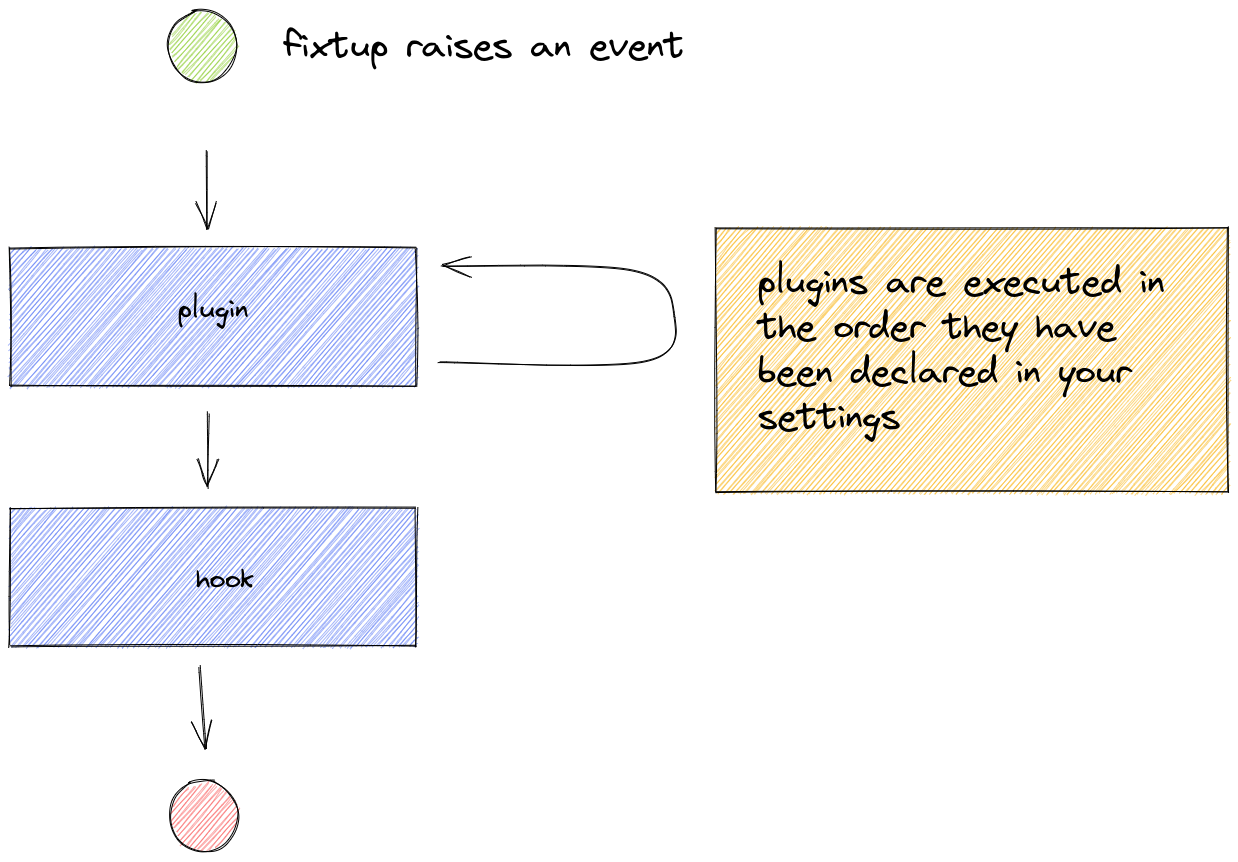Plugin
The plug-ins in Fixtup allow you to tune the process of building an environment.
A plug-in runs when a fixture is created, mounted, started, stopped or unmounted.
For example, the fixtup.plugins.dotenv plugin loads environment variables from an .env file
when starting a fixture. It offers to create the .env file when generating a new fixture with
the fixtup new command.
Here are some use cases that could be implemented with a plug-in:
mount and destroy resources in the cloud with
terraformfrom aterraform.tsfileinstantiate resources on a kubernetes cluster during a test
check the contents of a fixture
…
Configure plugins in Fixtup
A plug-in has to be registers in fixtup settings. If for you it is in a setup.cfg file, the list of plugins is declared in plugins section:
[fixtup]
fixtures=tests/fixtures
plugins=
fixtup.plugins.dotenv
fixtup.plugins.docker
More information on the configuration in the section Configure fixtup on your project
Note
Plugins are executed in their declared order.

Native plug-ins
Fixtup implements several plug-ins. They are installed when you install fixtup.
fixtup.plugins.docker: run containers declared in docker-compose.yml
fixtup.plugins.dotenv: load environment variables for a fixture from a
.envfile
Community plugins
You have created a plugin, you want to share it with the community? Contact me on github with this form so it appears here.
Implement your own plug-in
To implement a plug-in, you need to implement a module with those functions.
The functions are optional, if they are absent, fixtup will not take them into account.
import io
import os
from fixtup.prompt.factory import lookup_prompt
from fixtup.entity.fixture import Fixture
from fixtup.entity.fixture_template import FixtureTemplate
def on_new_fixture(template: FixtureTemplate):
"""
This function is called by fixtup when a developer instantiates a new fixture with ``fixtup new``.
It's the place to bootstrap content relative to your plugin.
For example, the plugin can create a terraform.tf file if the developer plans to use terraform.
"""
prompt = lookup_prompt()
is_terraform = prompt.confirm('Is this fixture use terraform declaration ?')
if is_terraform:
with io.open(os.path.join(template.directory, 'terraform.tf'), 'w') as fp:
pass
def on_setup_data(fixture: Fixture):
"""
This function is called by fixtup between each test to provision data
"""
pass
def on_starting(fixture: Fixture):
"""
this function is called by fixtup every time it need to start a test that requires the fixture.
"""
pass
def on_stopping(fixture: Fixture):
"""
this function is called by fixtup every time it end a test.
"""
pass
def on_teardown_data(fixture: Fixture):
"""
This function is called by fixtup between each test to cleanup data
"""
pass
In the configuration file, you must add the module of your plugin.
[fixtup]
fixtures=tests/fixtures
plugins=
fixtup.plugins.dotenv
fixtup.plugins.docker
fixtup_terraform.plugin